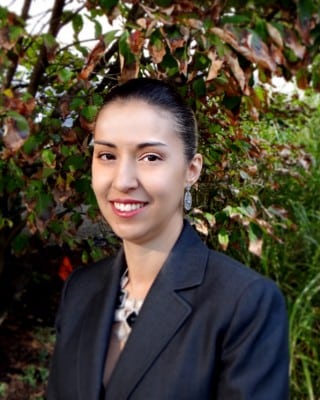
Arlene Quiñones Perez is the first Latina—Democrat or Republican—to chair a political party committee of a New Jersey county. Being the Hunterdon County Democratic chairperson (an office she has held since June 10, 2014) comes with significant challenges, of course, but it also comes with the opportunity to campaign for leaders who reflect the values of Hunterdon’s constituents. Perez sits down with HE to discuss the political climate in New Jersey, her path to politics, and mobilizing Latino voters.
What are the major issues the New Jersey Democratic Party is tackling right now?
The New Jersey Democratic Party is dealing with many of the same issues that have been plaguing this state for years now: unemployment, affordable educational opportunities, Hurricane Sandy recovery, and the shape of our economy, including our downgraded credit rating. The Democratic Party continues to work with leaders throughout the state to identify solutions to these long-standing problems.
How does the Democratic Party in New Jersey work with the Latino community?
The New Jersey Democratic Party has made significant strides to embrace the Latino community through Latino-based voter programs, which focus on mobilizing the Latino vote. By conducting Latino polling and phone banking in Spanish and English, the party has been able to develop a message that speaks to the issues that impact and affect our
community.
What do you consider the issues of highest importance to the Latino community?
The Latino community faces many of the same issues that affect all communities: affordable health care, unemployment, economic growth, educational opportunities, and immigration. An issue that is overlooked by many is the importance of politics and the role politics play in our daily lives.
What does the impact of politics look like on a day-to-day basis, specifically for Latinos in your state?
Elected officials formulate bills, propose policies, advocate their views to benefit their constituents, and appoint individuals to hold powerful positions. The Latino community in New Jersey alone represents 19 percent of the citizens but makes up only a small percentage of elected officials across the state. In Hunterdon County, especially, the Latino community must be involved to ensure they are represented on the local level. Who makes the decision to put sidewalks on your street, so kids can safely walk to school or to the school bus? Who appoints the judges on the municipal, state, and federal levels? These decisions are made by elected officials or by people who were appointed by elected officials. When decisions are made that will affect my life or that of my family, I want to be involved.
What drew you to politics?
Thirteen years ago, I began my political career as a canvasser for a gubernatorial campaign. Working on a campaign and believing in a candidate were some the best professional experiences I could ask for at such a young age. However, 13 years ago [Latinos] had significantly less political representation, and we were constantly overlooked for important policy-making positions. Today New Jersey has a Latino US senator, two Latinas in the state senate, and seven Latino members of the New Jersey Assembly, including the Speaker of the Assembly.
Are you seeing the Latino community’s political involvement changing?
The Latino community continues to make great strides politically, but we still have much to accomplish. We are proud to have elected US Senator Robert Menendez to Congress in 1992. He was then appointed to fill a vacancy in the Senate in 2006. The Latino community is now the largest minority in New Jersey, and our political importance will continue to increase significantly.
What is the work that still needs to be accomplished in engaging Latino voters?
To truly be a party for the Latino community, the Democratic Party must embrace the Latino community not just at election time, but year-round by, conducting voter registration drives, educating voters, and bringing the Latino community into the political process through elected positions within the party.
What does it mean to mobilize the Latino vote?
The Latino community is a large voting block, and when we mobilize, we can swing an election for a specific candidate. What we as a community need to continue to understand is our political power—and not just around election time. We need to capitalize on our political power and force issues that are important to our community to ensure that we are at the table throughout the year when important decisions are made about policies that affect our community.

